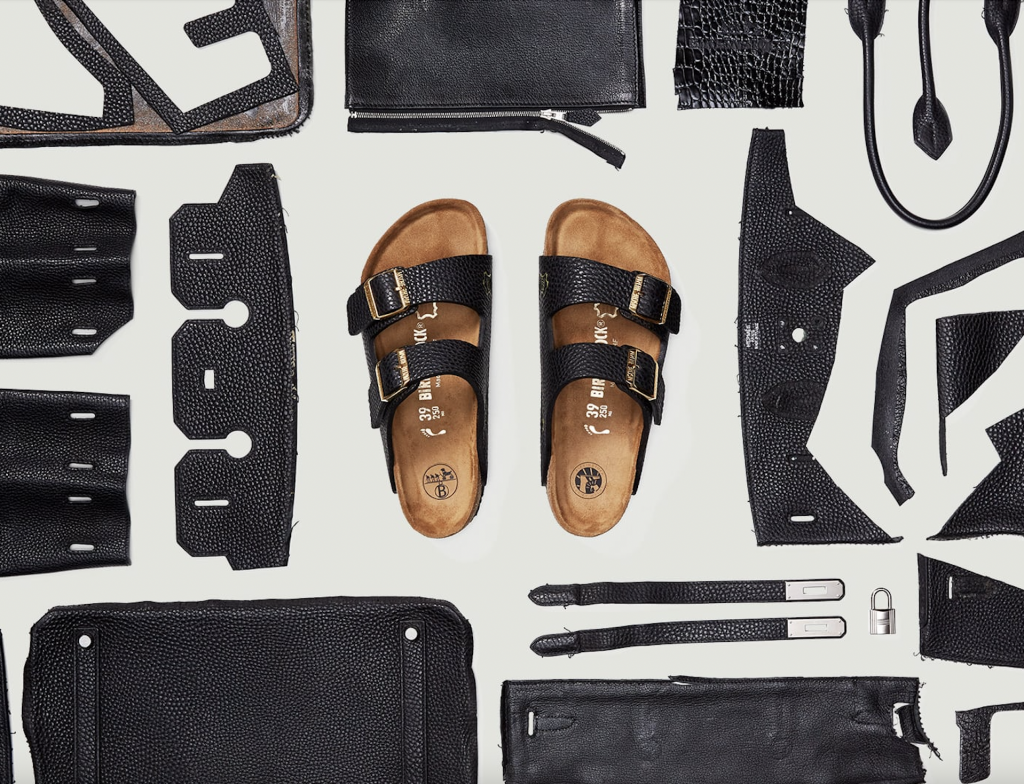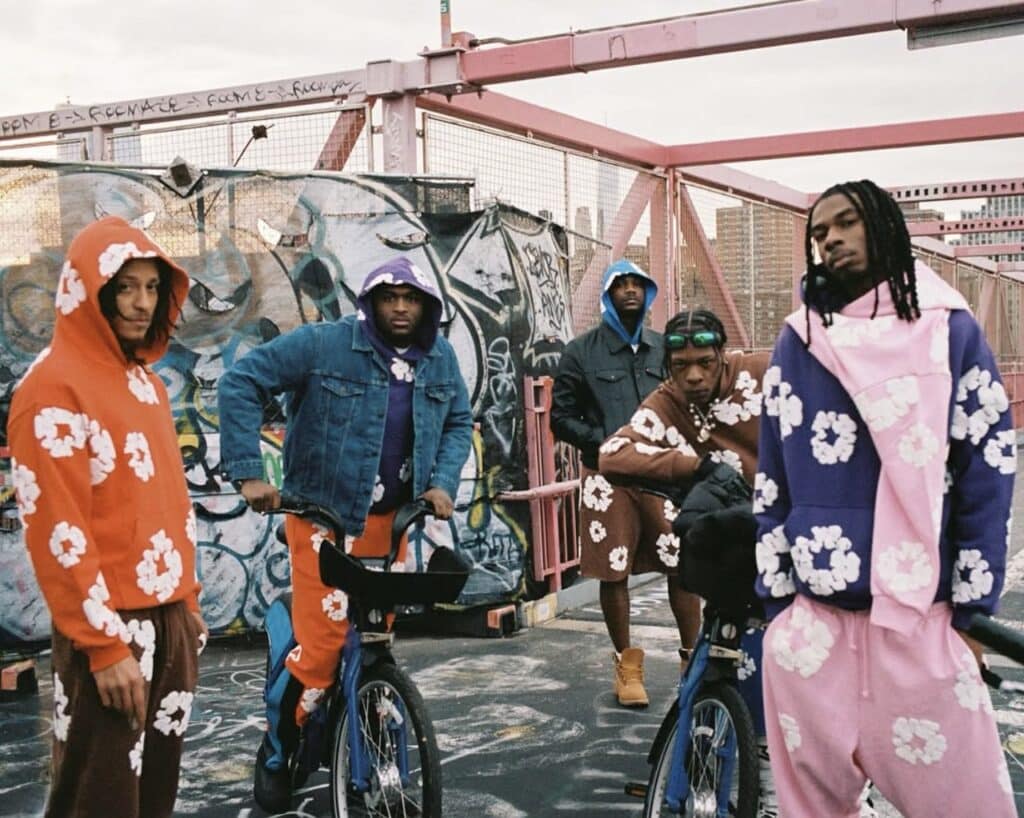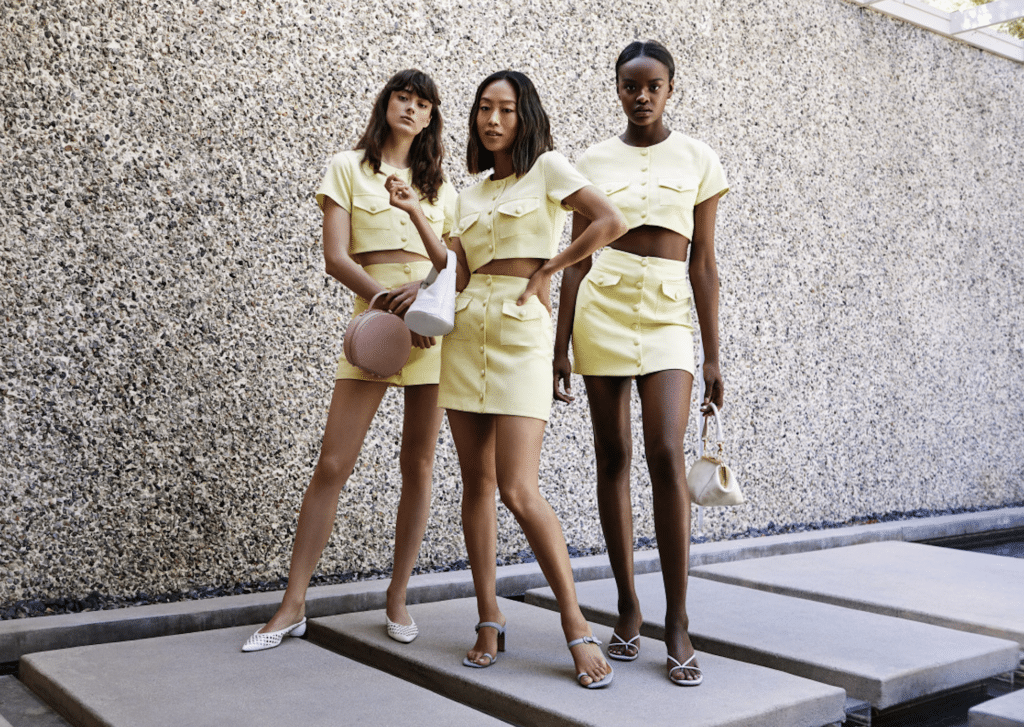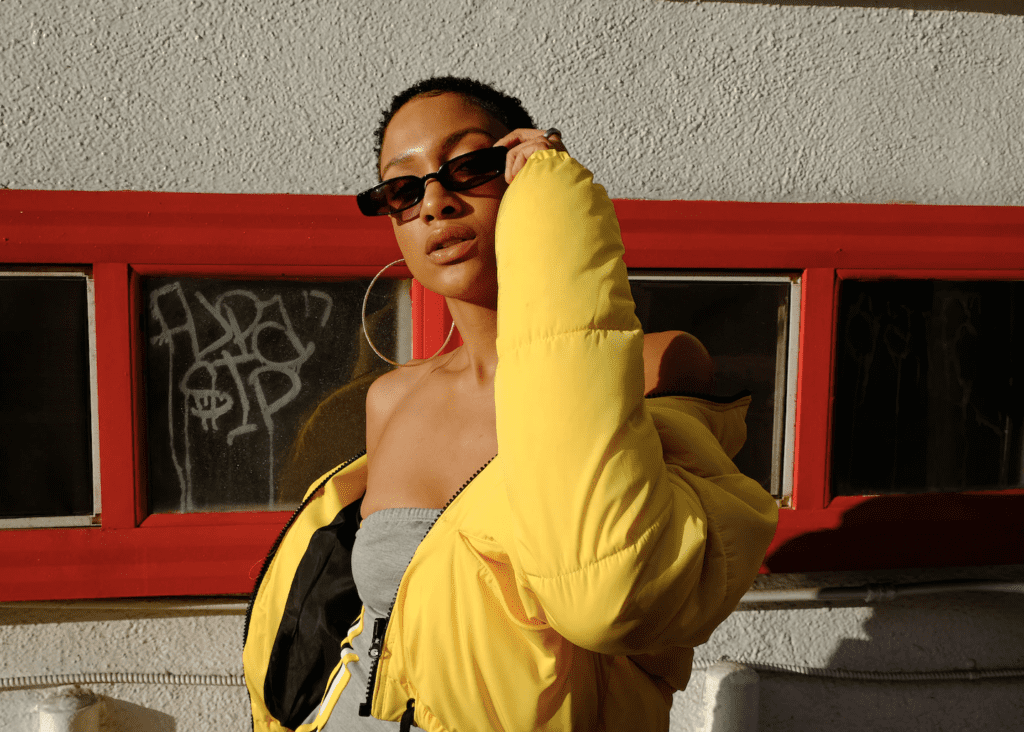“A company called MSCHF has quietly been creating some of the most absurd, cynical, and viral projects and products that have spread across the internet. Their products are meant to poke fun at everything and anything, because MSCHF takes pride in pushing the boundaries.” That is how Business Insider described Brooklyn-based MSCHF and its offerings, which notoriously range from a stock market app that makes trading tips based on a user’s astrological sign to Nike sneakers filled with Holy Water and individually-sold polka dots from a Damien Hurst print.
The latest product from MSCHF? Footwear that the company calls “the most exclusive sandals ever made.” A mashup between a Birkin bag and a Birkenstock, MSCHF’s “Birkinstocks” look a whole lot like those from the German footwear company, albeit with one significant point of differentiation: all of the leather is sourced from more than $122,500 worth of genuine Hermès Birkin bags, according to MSCHF.
As for whether Hermès and/or Birkenstock are involved in – or were consulted on – the lookalike, sound-alike footwear, which was formally revealed on Monday (all ten pairs of them, a few of which have already been sold to MSCHF’s “VIP list”), the answer is no, thereby, raising some interesting questions about the legality of the sandals that range in price from $34,000 to $76,000. After all, Hermès maintains rights in the style name of its world-famous bag and in its particular “shade of the color orange [as] applied to the exterior of merchandise boxes.” Meanwhile, Birkenstock holds rights in its name (and confusingly similar iterations of its name, such as “Birkinstock”), as well as in the design of its famous sandal.
Given the frequency with which brands engage in high-end collaborations, the risk of consumer confusion – the central inquiry in a trademark infringement case – might be quite high here in both an initial sale and post-sale capacity, something that is only bolstered by the fact that in at least one marketing communication, MSCHF refers to the sandals as “Birkenstocks made from destroyed Birkin bags.”
At the same time, it is not difficult to imagine that in a hypothetical case of trademark infringement and/or dilution, MSCHF could have arguments to wield in its defense. A fair use claim (parody, maybe?), for example, might serve to shield it from liability for making use of a markedly similar version of the “Birkenstock” name on a markedly similar version of a Birkenstock sandal.
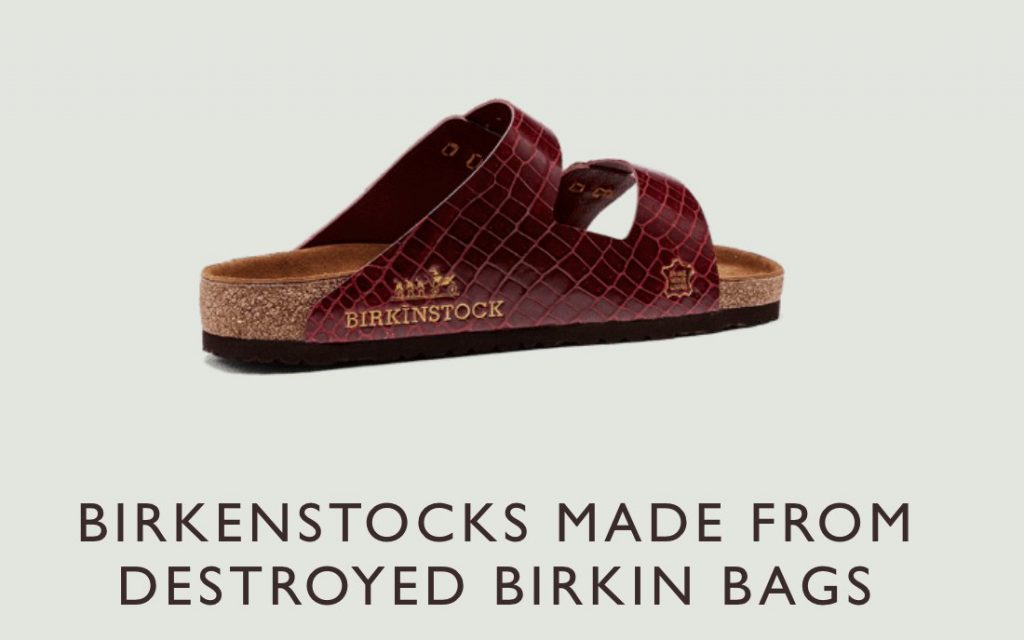
Modification and Alteration
Another interesting element at play here comes from the fact that the sandals appear to be the latest example in an enduring trend of modifications made to or derived from authentic luxury-level goods. At one end of the ever-developing alteration spectrum is the “sprucing up” of otherwise authentic goods in furtherance of the resale process, a practice that has come under the microscope in the Chanel v. What Goes Around Comes Around (“WGACA”) case. In that ongoing legal back-and-forth, Chanel argued that WGACA may have misrepresented to the consuming public “the nature, condition and quality of its Chanel-branded products” when it failed to “disclose that products were refurbished, repaired and refinished (and that such work was not authorized or done by Chanel).”
As it turns out, WGACA previously revealed that some of its bags were subject to slight modifications by a third-party. The well-known reseller claimed that the modifications at issue – i.e., “limited ‘sprucing up’ that [was carried out by Rago Brothers Shoe & Leather Repair]” – “never resulted in a Chanel product [being] ‘so repaired, reconditioned, or altered to have lost its identity as a genuine Chanel item.”
Counsel for Chanel disagreed, asserting in a letter to Judge Louis Stanton of the U.S. District court for the Southern District of New York that WGACA “mistakenly cited Champion Sparkplug Co. v. Sanders to hold that ‘a refurbished product only becomes counterfeit if the product is fundamentally transformed.” Chanel pointed to SDNY Judge Nathan’s September 2019 decision in the Hamilton watch case, stating that “it would be possible to imagine a case ‘where the reconditioning or repair would be so extensive or so basic that it would be a misnomer to call the article by its original name, even if the words ‘used’ or ‘repair’ were added.” (Over 60 years ago, in the Champion Spark Plug case, the Supreme Court held that refurbished products could legally bear the mark of the original manufacturer.)
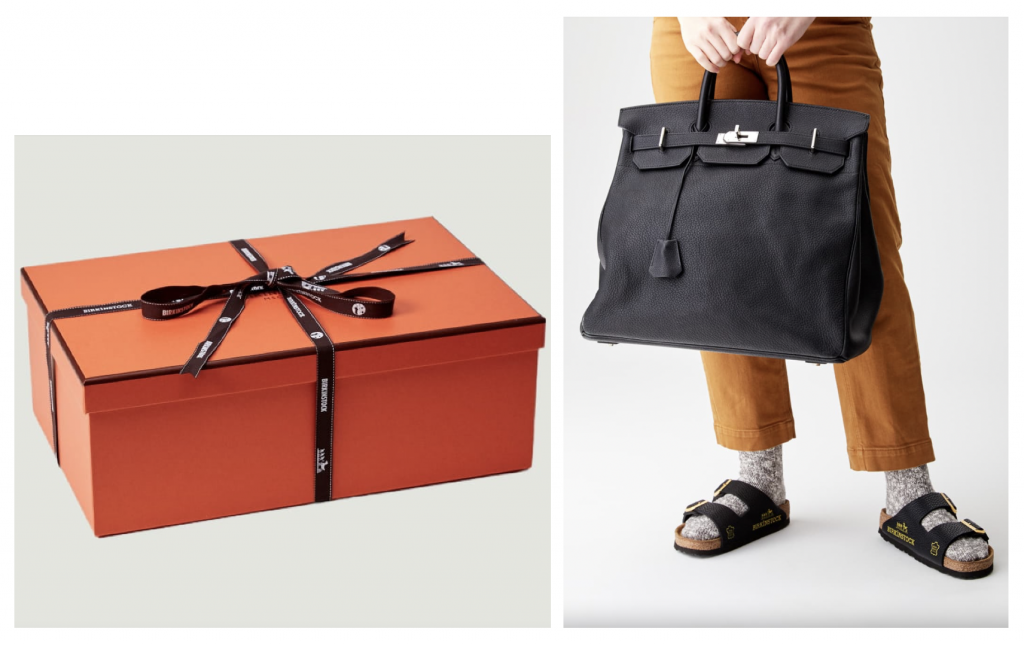
Somewhere in the middle of the alteration spectrum are instances like La Californienne’s modified watches, which prompted a since-settled lawsuit from Rolex, and Vortic’s famously-altered Hamilton watch.
Meanwhile, the footwear at play here probably falls more neatly in line with the enduring pattern that sees high-end “bootleggers” taking authentic products (but in some cases, counterfeit goods), and fashioning them into different wares. Imran Moosvi, Chanel Copy, Vandy the Pink, Tsuwoop, and Etai Drori come to mind, as they have found fans in some of the biggest names in music and pop culture decades after Harlem-based tailor Dapper Dan famously put this phenomenon in motion in the 1970s when he first began offering up designer bootlegs from his atelier at 43 East 125th Street in New York City. Instances in which the underlying materials have been taken from authentic luxury goods have prompted interesting trademark-centric inquiries.
MSCHF and the Law
The Birkinstock drop is hardly be the first time that MSCHF’s goods have posed legal questions. The 88 individual dots that the company – which was founded in 2016 by Gabriel Whaley – cut out of a limited print of Damien Hirst’s 2018 spot painting L-Isoleucine T-Butyl Ester and sold for $480 apiece, called into question potential ramifications of the relatively obscure Visual Artists Rights Act.
Around the same time (MSCHF “drops” new projects and/or products every two weeks or so), the company debuted a “pirate video” station. The premise of the project, TechCrunch stated at the time: “MSCHF has picked up subscriptions to Hulu, Disney+, Netflix, HBONow, Prime Video and Showtime and it is broadcasting a continuous stream of one random program from each, live to anyone who hits the site.” Reflecting on the project last year, Daniel Greenberg, a member of MSCHF’s founding team, acknowledged the potential for legal fallout, which would likely center on piracy claims, telling TechCrunch, “We have a standard check with these types of things, [but that] doesn’t mean it’s legal per se. It [just] means the risk profile is acceptable to us.”
Beyond that, trademark issues abounded in connection with the company’s alteration and sale of the Holy Water-infused Nike sneakers. As the New York Times reported early last year, the sneaker stunt went thoroughly viral – driving an eye-watering number of online searches, and garnering countless headlines and mentions on various television shows. In fact, the Times noted that “the only thing that did not happen, was a public disavowal of the shoes by Nike or the Vatican,” citing Kevin Wiesner, a creative director at MSCHF.
And still yet, in connection with the MSCHF x Supreme x The North Face x Adidas x Stussy x Palace x Chinatown Market x Kith x Off-White x BAPE x Nike “impossible collaboration” t-shirts that MSCHF made and sold last year, Whaley told Business Insider that “the likelihood of receiving a cease and desist letter from at least one of the brands included is high.” In fact, the MSCHF founder was actually hoping to drive such attention, noting that formal legal pushback would “help increase the value of the product.” According to BI, “If MSCHF was told to pull the products, their resale value would immediately skyrocket among hypebeasts looking to get their hands on a ‘banned’ piece of unofficial, limited merchandise.”
Now, the company seems to be taking something of the same stance here. When asked whether the group is concerned about legal ramifications from either Hermès or Birkenstock, a representative for the company said no. However, she told TFL, “We do hope they see it!”







